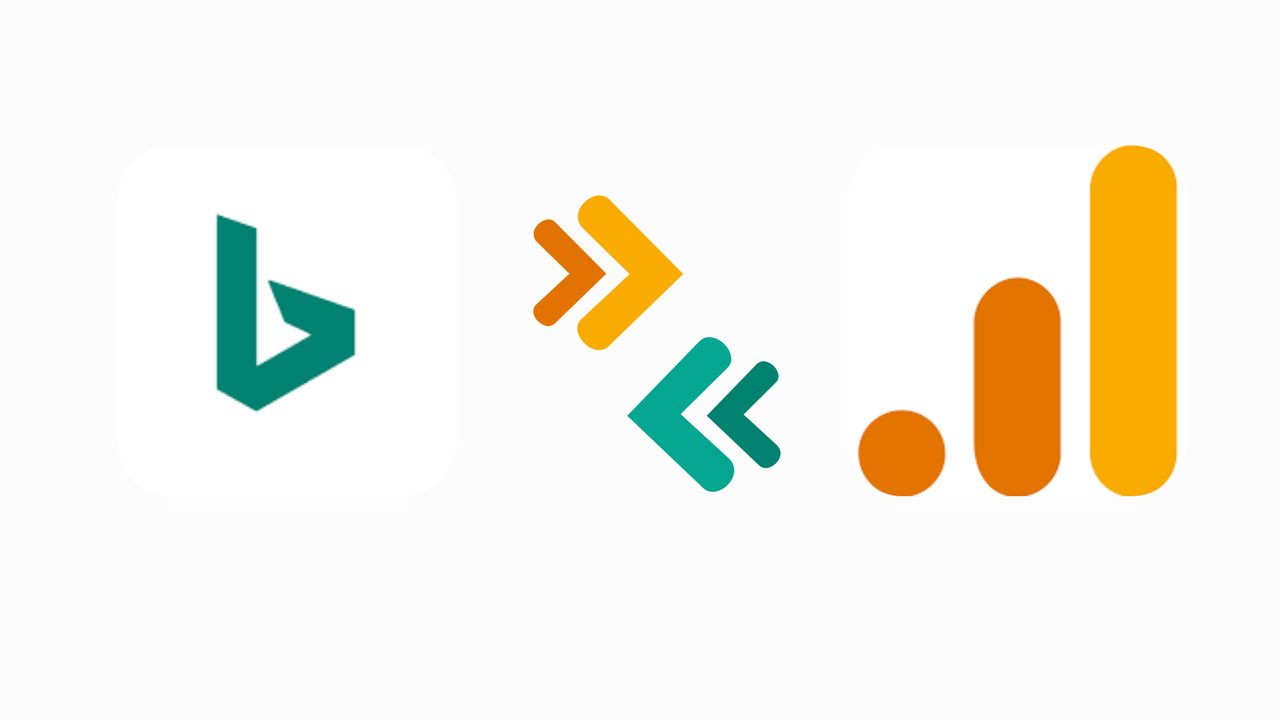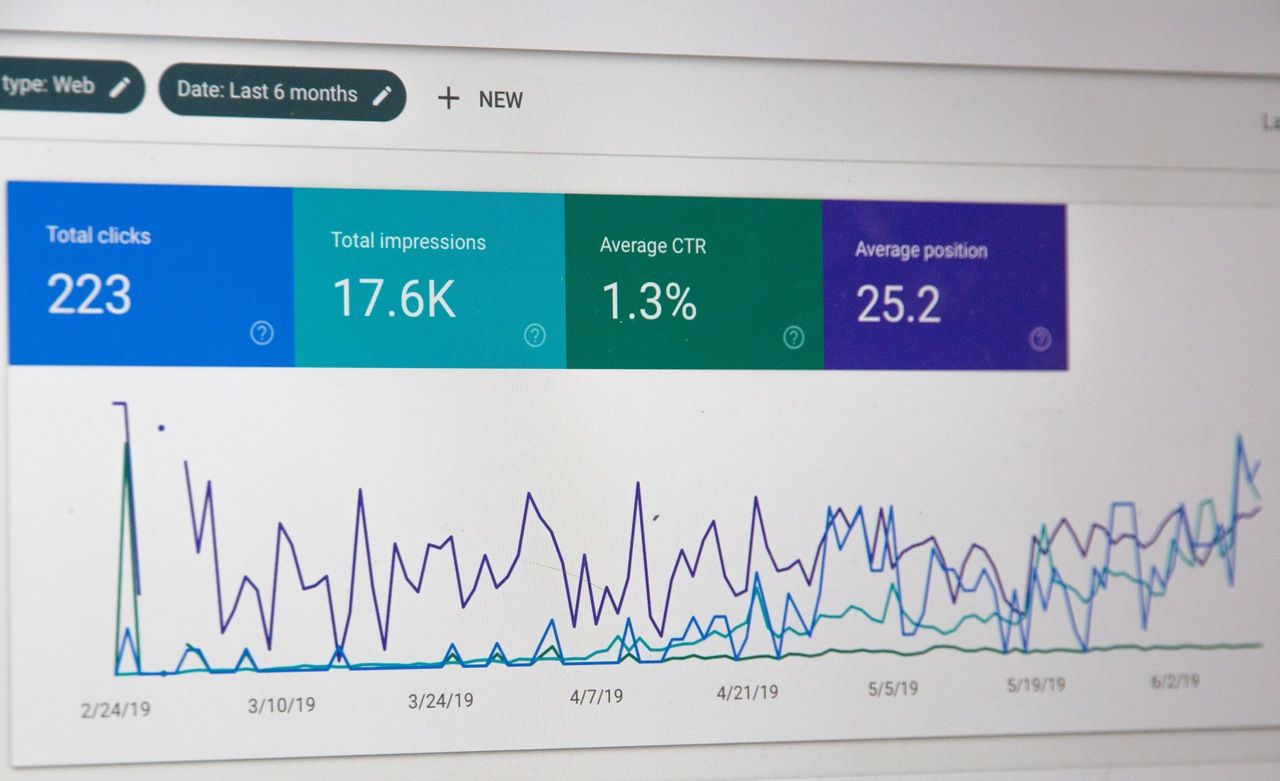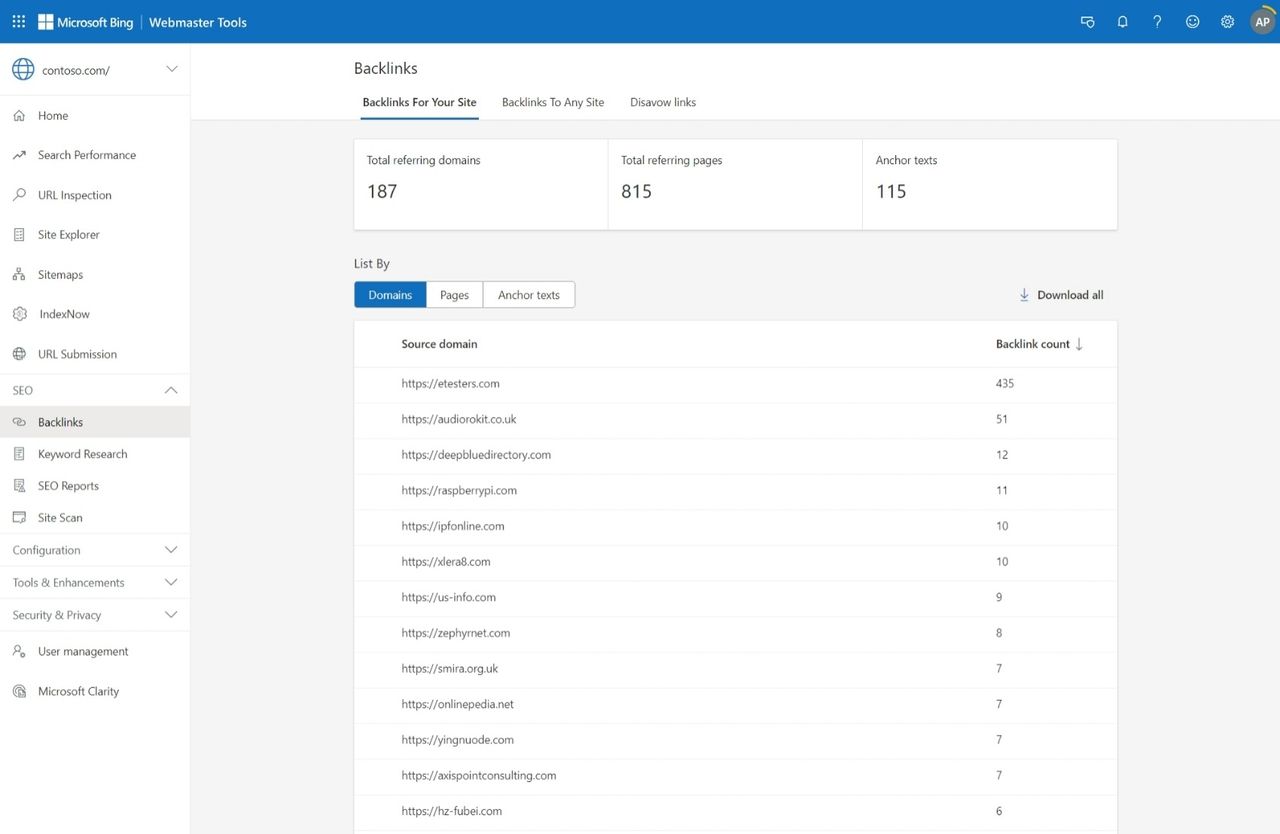
Bing Analytics and Google Analytics offer invaluable insights to businesses. These two powerful tools are pivotal in understanding user behavior and enhancing a website's performance. To harness the full potential of these platforms, it's essential to delve into their intricacies.
Brief Overview of Bing Analytics and Google Analytics
Bing Analytics and Google Analytics are both dominant players in the world of web analytics. They enable website owners and marketers to collect data on user interactions, analyze trends, and make data-driven decisions.
Bing Analytics
Bing Analytics is an integral part of Bing Webmaster Tools, providing a comprehensive understanding of how your website is performing on the Bing search engine. It offers detailed information about search queries, click-through rates, and user demographics. This tool is particularly valuable if you're looking to optimize your website for Bing's search engine.
Google Analytics
Google Analytics, on the other hand, is the go-to platform for tracking website performance on the Google search engine and beyond. It provides a wealth of information, including user traffic, page views, bounce rates, and much more. Google Analytics is renowned for its user-friendly interface and extensive customization options.
Importance of Web Analytics for Businesses
Web analytics plays a critical role in the success of modern businesses. It enables companies to make informed decisions, optimize their online presence, and drive growth.
Understanding user behavior, preferences, and engagement patterns is essential for tailoring your website to meet your audience's needs. Both Bing Analytics and Google Analytics empower businesses to do just that, but they come with distinct features and capabilities.

Understanding Google and Bing Analytics
To truly grasp the differences and benefits of Google Analytics and Bing Webmaster Tools, let's take a closer look at each platform individually.
Google Analytics
Highlight Features:
Google Analytics offers a plethora of features that have made it the industry standard for web analytics.
1. Real-Time Data: Google Analytics provides real-time data, allowing you to monitor website activity as it happens. This feature is invaluable for tracking the immediate impact of changes or marketing campaigns.
2. User-friendly Interface: The platform's intuitive user interface makes it accessible to users of all levels. Whether you're a beginner or an advanced analyst, Google Analytics is user-friendly.
3. Customization: One of its strengths lies in the ability to customize reports and dashboards. You can tailor the data to suit your specific business goals and track what matters most to you.
4. E-commerce Tracking: For online businesses, e-commerce tracking is a key feature. Google Analytics offers in-depth insights into product performance, transaction data, and more.
Key Metrics Breakdown:
Sessions: This metric tells you how many times users have interacted with your site.
Pageviews: It tracks the total number of pages viewed on your website.
Bounce Rate: Bounce rate measures the percentage of visitors who navigate away from your site after viewing only one page.
Conversion Rate: It indicates the percentage of users who complete a specific action, such as making a purchase or filling out a contact form.
Average Session Duration: This metric shows the average time users spend on your site.
Bing Webmaster Tools
Highlight Features:
Bing Webmaster Tools offers unique features tailored to the Bing search engine and is an essential tool if you're targeting this audience. Its distinctive features include:
- Keyword Research: Bing Webmaster Tools provides keyword research data, helping you identify keywords that perform well on Bing.
- Crawl Control: This tool allows you to control the crawl rate of Bingbot, which can be valuable for managing server resources.
- Submit URLs: You can directly submit URLs to Bing for indexing, which can expedite the indexing process.
- Inbound Links: It provides insights into the websites linking to yours, aiding your link-building efforts.

In-depth Comparison: Bing Webmaster Tools or Google Analytics
To make an informed choice between Bing Webmaster Tools and Google Analytics, it's essential to dissect the key differences, starting with their respective SEO tools.
Differences between Bing Webmaster and Google Analytics
SEO Tools:
Bing Webmaster Tools and Google Analytics offer distinct sets of SEO tools tailored to the search engines they represent.
- Bing Webmaster Tools: This platform offers SEO features specifically designed for Bing. It provides keyword research data, insights into your site's performance on Bing, and even allows you to submit URLs directly for indexing. If your target audience heavily relies on Bing for searches, these tools can be invaluable for optimizing your site's visibility on this search engine.
- Google Analytics: While Google Analytics doesn't provide SEO tools as extensive as those in Bing Webmaster Tools, it offers a different perspective. It focuses more on user behavior and website performance analytics. You can track user traffic, pageviews, bounce rates, and conversion rates to gain insights into your site's overall effectiveness. Google Analytics excels at providing data for enhancing the user experience and tailoring your content strategy.
In summary, the choice between Bing Webmaster Tools and Google Analytics largely depends on your target audience and specific goals. If you're looking to optimize for Bing's search engine and access SEO tools tailored for that purpose, Bing Webmaster Tools is the way to go.
On the other hand, if you prioritize a broader, user-centric approach to analytics, Google Analytics offers a robust set of tools for enhancing website performance and user experience.

Features Unique to Each Platform
To gain a comprehensive understanding of Bing Analytics vs. Google Analytics, let's delve into the unique features and specialties that each platform offers.
Google Analytics Specialties
On-page SEO Tool: Optimizing Your Website for Google
Google Analytics specializes in providing insights into your website's performance on the Google search engine. It offers a range of on-page SEO tools, including keyword analysis, organic search traffic tracking, and the ability to measure the impact of SEO efforts. These tools enable you to fine-tune your website to perform optimally on Google, the most widely used search engine globally.
Mobile Optimization for Higher Conversions
Mobile optimization is a key focus of Google Analytics. With the ever-increasing use of smartphones, ensuring your website is mobile-friendly is crucial. Google Analytics offers insights into mobile user behavior, helping you identify areas for improvement. By understanding how mobile users interact with your site, you can optimize it for higher mobile conversions.
Understanding, Improving, and Benchmarking for Success
Google Analytics excels in providing a broad range of metrics and data that allow you to understand user behavior and make informed decisions. It enables you to benchmark your website's performance against industry standards and competitors. This comprehensive approach helps you not only understand your audience but also continually improve your website's effectiveness.
Bing Webmaster Tools Specialties
Site Speed Enhancement
Bing Webmaster Tools is dedicated to optimizing the performance of your website on the Bing search engine. It specializes in site speed enhancement, providing detailed insights into your site's load times and recommendations for improvement. Faster-loading pages not only improve the user experience but also positively impact search rankings.
Understanding Consumers' Local Search Behavior
Bing Webmaster Tools is particularly valuable for businesses that want to tap into local markets. It offers insights into consumers' local search behavior, helping you understand how users in specific regions are finding your site. This data is vital for tailoring your content and marketing efforts to local audiences.
Maximizing Conversions Through Personalized Marketing
Bing Webmaster Tools specializes in personalized marketing insights. It allows you to analyze user demographics and preferences, helping you tailor your marketing strategies for higher conversion rates. This personalized approach can significantly impact your marketing ROI.
By recognizing the unique features and specialties of Google Analytics and Bing Webmaster Tools, you can make an informed choice based on your specific business goals and target audience. Each platform offers a distinct set of tools designed to help you succeed in the digital landscape.

Case Studies and Practical Tips
Let's explore some case studies and practical tips that shed light on the application and nuances of Bing Analytics vs. Google Analytics.
Ideas for Collaborating with Influencers on Social Media
In the realm of digital marketing, influencer collaborations are a powerful tool for reaching a wider audience. Google Analytics can help you measure the impact of these collaborations by tracking traffic, engagement, and conversions that result from influencer promotions.
On the other hand, Bing Analytics provides insights into how influencer campaigns perform specifically on the Bing search engine. By analyzing these data points, you can fine-tune your influencer marketing strategy for each platform, ensuring maximum ROI.
How to Repurpose Content Across Different Social Media Platforms
Content repurposing is an efficient way to make the most of your marketing efforts. Google Analytics can assist in tracking the performance of repurposed content by providing data on user engagement, traffic sources, and conversion rates.
Bing Analytics, with its focus on Bing's search engine, allows you to tailor your repurposing strategy to the audience using this platform. Understanding the nuances of user behavior on each platform is crucial for optimizing your content repurposing efforts.
Tips for Creating Visually Appealing Posts
Visual content is a key component of modern digital marketing. Both Google Analytics and Bing Analytics can offer insights into the performance of visually appealing posts.
Google Analytics can help you track metrics like user engagement and bounce rates on pages with visual content, allowing you to refine your visual content strategy. Bing Analytics, with its focus on the Bing search engine, provides data on how visual posts perform in Bing's search results. By analyzing this data, you can enhance the visibility and impact of your visual content.
These case studies and practical tips demonstrate the real-world applications of Bing Analytics and Google Analytics in various digital marketing scenarios. By harnessing the capabilities of each platform, you can make data-driven decisions to optimize your online presence and marketing efforts.

Enhancing User Experience with Google and Bing
Creating an exceptional user experience is a paramount goal for websites. Let's explore how Google Analytics and Bing Analytics can assist in achieving this objective.
Designing an Intuitive and User-Friendly Website
Both Google Analytics and Bing Analytics provide valuable insights to help you design an intuitive and user-friendly website.
Google Analytics: Google Analytics offers user behavior data that can guide website design. By analyzing user flows and behavior on your site, you can identify areas where visitors drop off or face challenges. This information is crucial for optimizing your site's navigation and layout. Additionally, Google Analytics can show you which devices and browsers your audience uses, allowing you to ensure compatibility and responsiveness.
Bing Analytics: Bing Analytics, with its focus on the Bing search engine, provides data specific to Bing users. You can understand how users coming from Bing interact with your website. This insight is essential if Bing is a significant source of traffic. Tailoring your website's user experience to cater to this audience can enhance your site's performance on Bing.
Designing for Conversions: Best Practices for Layout and Visual Hierarchy
Creating a website that encourages conversions is a shared goal for businesses. Google Analytics and Bing Analytics offer insights into optimizing your website's layout and visual hierarchy for better conversion rates.
Google Analytics: Google Analytics can track conversion funnels and goals, allowing you to identify where users drop off in the conversion process. By understanding these points of friction, you can refine your website's layout and design to guide users smoothly towards conversion. The platform also provides heatmaps and user behavior data that reveal which areas of your site receive the most attention, aiding in visual hierarchy optimization.
Bing Analytics: Bing Analytics helps you understand the conversion behavior of users coming from Bing. It offers data on how specific demographics and regions convert on your website, enabling you to tailor your design and layout for higher conversions among this audience. By utilizing Bing Analytics, you can ensure that your website is not only user-friendly but also conversion-focused for Bing users.
Incorporating the insights provided by both Google Analytics and Bing Analytics, you can create a website that offers a seamless user experience, optimized for conversions, and tailored to the needs of your specific audience.

Price and Value Analysis
When comparing Bing Analytics and Google Analytics, it's crucial to consider the pricing and the value each platform offers.
What is the Best Value?
Bing Analytics: Bing Analytics is known for its cost-effectiveness. It's free to use and provides a range of valuable insights, making it an attractive option for businesses looking to minimize their expenses. If you're primarily targeting Bing's search engine, the cost-effectiveness of Bing Analytics makes it an appealing choice.
Google Analytics: Google Analytics offers a free version, which provides a wealth of data and tools. For many small to medium-sized businesses, the free version is more than sufficient. However, for larger enterprises or those with more complex analytics needs, Google Analytics 360, a premium version, is available at a higher cost. The choice between the free and premium versions depends on your specific requirements and budget.
In determining the best value, consider your business size, analytical needs, and target audience. While both platforms offer free options, the decision may come down to your unique circumstances and objectives. It's essential to weigh the cost against the value of the insights and features that align with your business goals.
Conclusion
In the world of web analytics, the choice between Bing Analytics and Google Analytics ultimately depends on your specific needs, goals, and target audience. Both platforms have their unique strengths and specialties.
If you want to optimize your website for the Bing search engine and cater to a Bing-leaning audience, Bing Analytics and Bing Webmaster Tools can provide valuable insights specific to that search engine. It's a cost-effective option that's well-suited for a Bing-centric strategy.
On the other hand, Google Analytics is a versatile choice for a wide range of businesses. It offers an extensive array of features and metrics, making it suitable for diverse analytical needs, including user behavior analysis, website performance evaluation, e-commerce tracking, and custom reporting.
Both Bing Analytics and Google Analytics are essential tools in the digital landscape, empowering businesses to make data-driven decisions, enhance user experiences, and improve online performance. Your choice should align with your specific goals, audience, and budget.
In conclusion, these platforms don't necessarily compete with each other; they can complement each other. Many businesses use both Bing Analytics and Google Analytics simultaneously to access a broader spectrum of data and insights, ensuring a more comprehensive understanding of their online presence.

